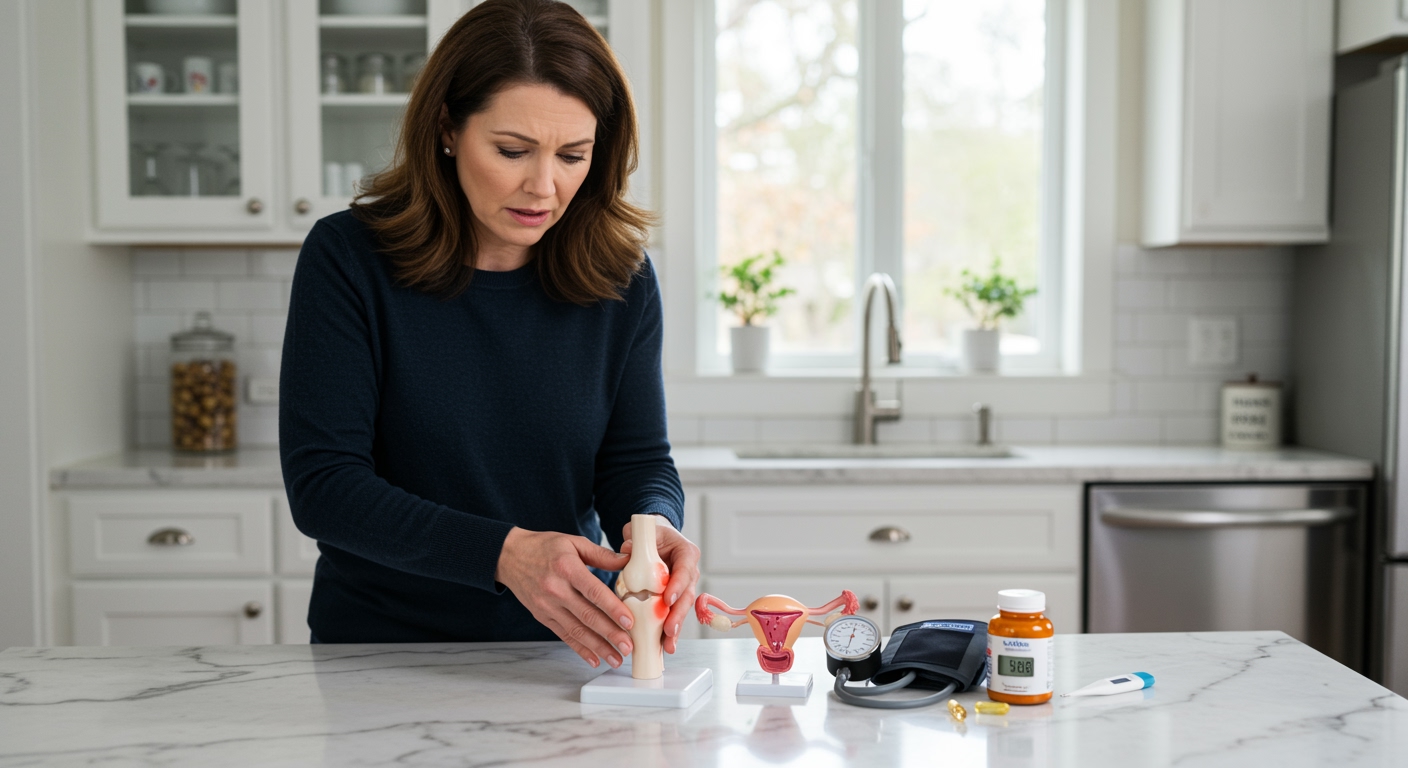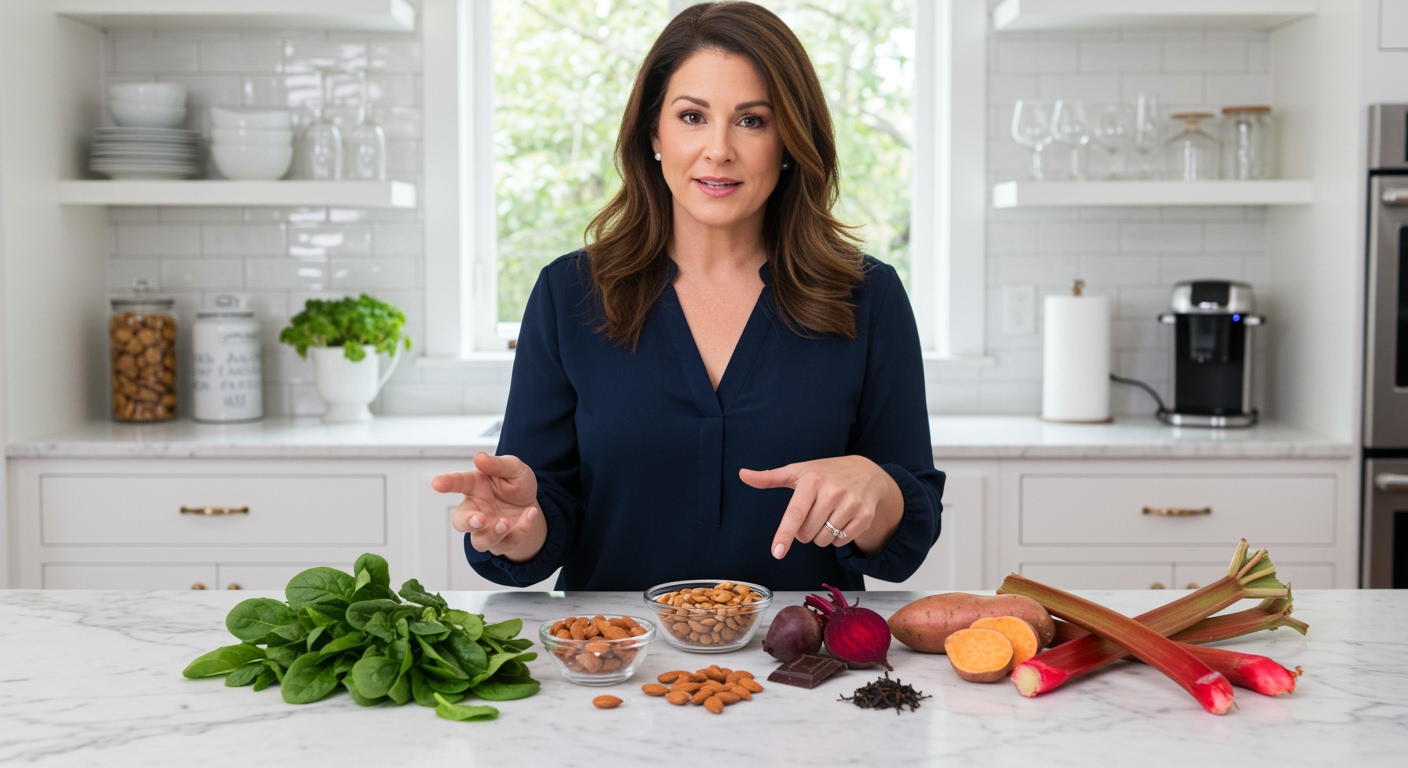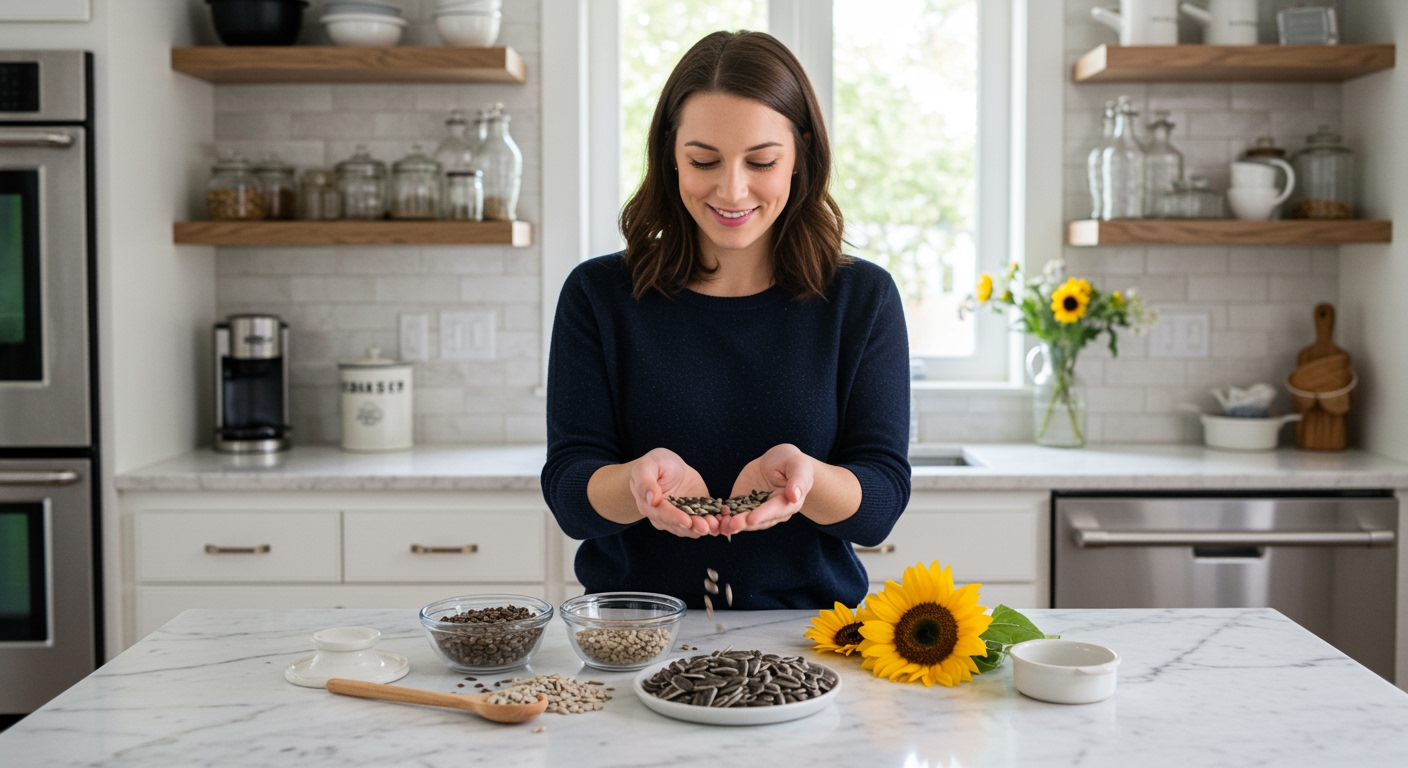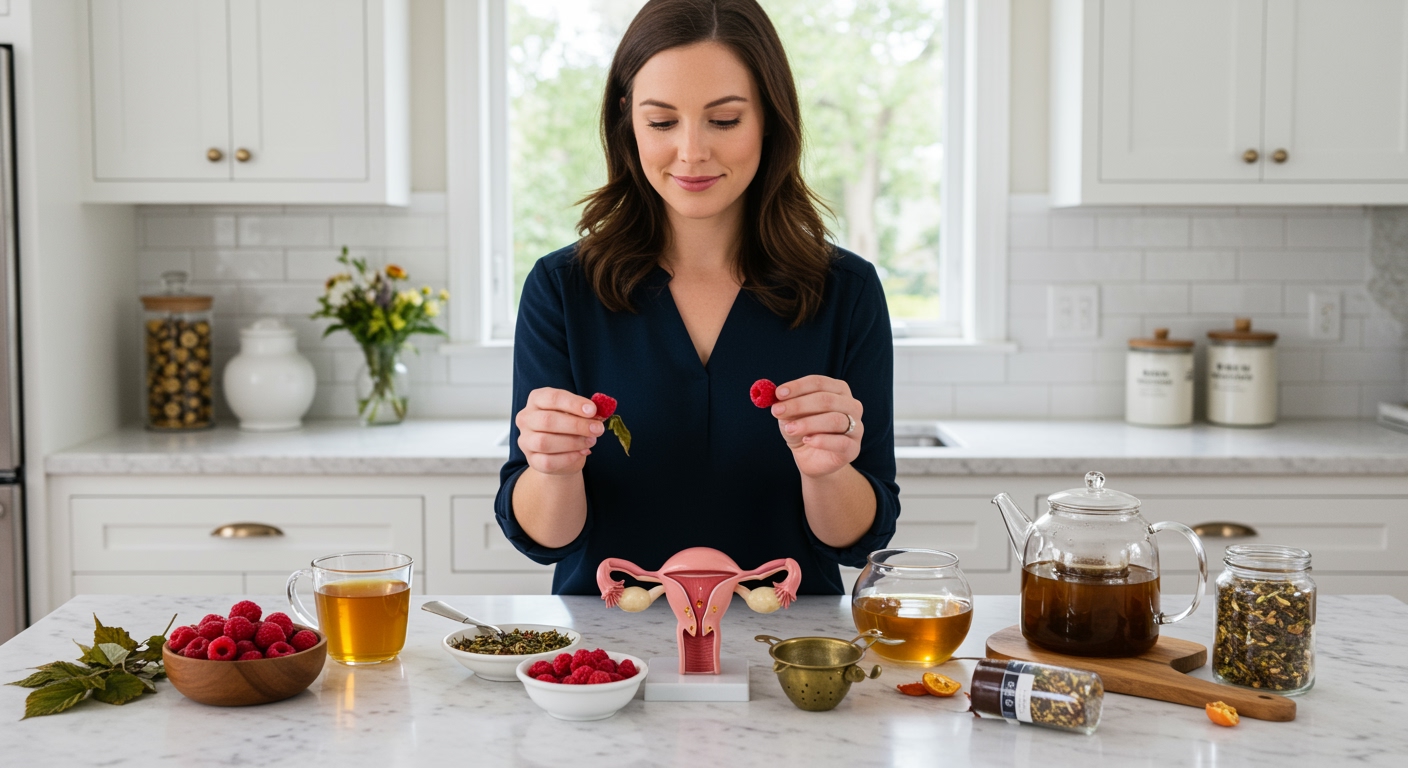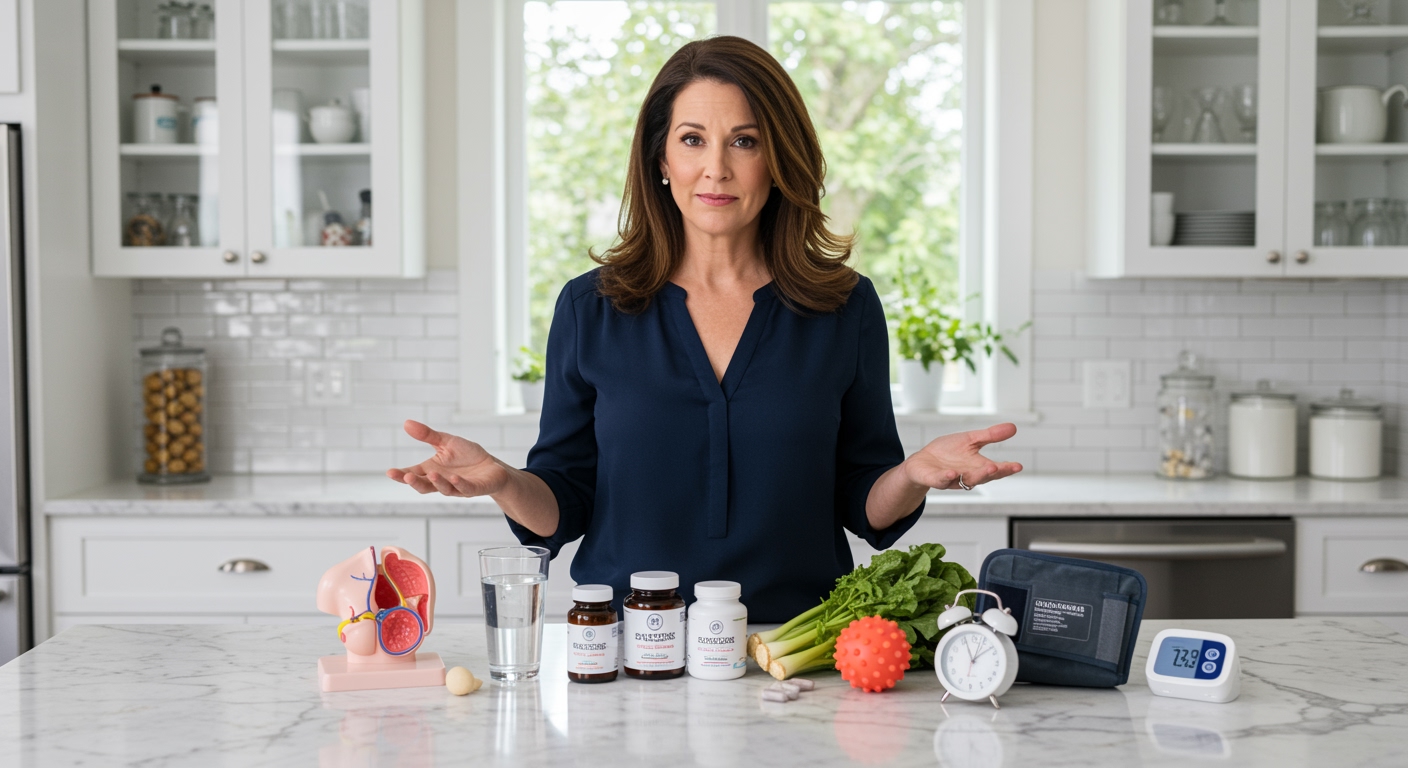✪ Key Takeaway: PCOS can cause severe joint pain through chronic inflammation, insulin resistance, and hormonal imbalances that trigger inflammatory responses.
Introduction
Your knees ache when you wake up, your shoulders feel stiff after sitting at your desk, and your fingers hurt when you try to open jars.
You might think this is normal aging or maybe you slept wrong, but what if your joint pain is actually connected to your PCOS?
Hi, I’m Abdur, your nutrition coach and today I’m going to explain how PCOS creates a perfect storm of inflammation that can attack your joints and cause real, debilitating pain.
How Does PCOS Create Inflammation In Your Body?
PCOS triggers chronic inflammation through multiple pathways that most people never understand.
Your ovaries produce excess androgens like testosterone, which disrupts normal hormone balance and creates inflammatory signals throughout your body.
Insulin resistance, present in up to 70% of women with PCOS, forces your body to produce more insulin than normal.
This excess insulin doesn’t just affect blood sugar – it activates inflammatory pathways that release chemicals called cytokines into your bloodstream.
These cytokines travel throughout your body like tiny messengers, telling your immune system to create inflammation wherever they land.
Your joints become prime targets because they contain synovial fluid that these inflammatory chemicals can easily penetrate and irritate.
✪ Fact: Women with PCOS have inflammatory markers that are 50-70% higher than women without the condition.
Which Joints Are Most Affected By PCOS?
Your knees and hips bear the brunt of PCOS-related joint pain because they carry your body weight and are highly susceptible to inflammation.
Many women with PCOS experience morning stiffness in these large joints that can last for 30 minutes or more after waking up.
Your hands and wrists also suffer because the small joints contain delicate tissues that inflammatory cytokines can easily damage.
The spine becomes another common target, especially the lower back where hormonal inflammation can cause muscle tension and joint irritation.
Shoulder pain often develops because the complex joint structure makes it vulnerable to inflammatory chemicals circulating in your bloodstream.
Some women notice their jaw joints becoming tender or clicking, which happens when inflammation affects the temporomandibular joint.
✪ Pro Tip: Track your joint pain patterns in a diary to identify which joints hurt most and when symptoms worsen.
Why Do Some Women With PCOS Get Joint Pain While Others Don’t?
Your genetic makeup plays a huge role in determining whether PCOS will trigger joint pain in your body.
Some women inherit genes that make their immune systems more sensitive to inflammatory signals, while others have natural protection.
The severity of your insulin resistance directly correlates with inflammation levels – higher insulin resistance means more joint pain.
Your body weight influences joint pain because excess weight puts mechanical stress on joints while fat tissue produces additional inflammatory chemicals.
Stress levels matter enormously because chronic stress elevates cortisol, which can worsen inflammation and make joint pain more severe.
Diet quality affects inflammation throughout your body – processed foods and sugar feed inflammatory pathways while whole foods help calm them.
Sleep quality impacts your body’s ability to repair inflammatory damage, so poor sleep can make PCOS joint pain much worse.
✪ Note: Age at PCOS diagnosis matters – earlier onset often leads to more severe inflammatory complications including joint pain.
What Can You Do To Reduce PCOS Joint Pain?
Anti-inflammatory foods become your most powerful weapons against PCOS joint pain.
Fatty fish like salmon and sardines provide omega-3 fatty acids that directly counteract the inflammatory chemicals your body produces.
Leafy greens, berries, and colorful vegetables contain antioxidants that neutralize free radicals and reduce inflammation at the cellular level.
Regular exercise helps reduce insulin resistance, which decreases the inflammatory cascade that causes joint pain.
Low-impact activities like swimming, walking, and yoga provide joint movement without adding stress that could worsen inflammation.
Managing your blood sugar through balanced meals prevents insulin spikes that trigger inflammatory responses.
Quality sleep for 7-9 hours nightly allows your body to repair inflammatory damage and reset your hormone balance.
✪ Pro Tip: Start with just one anti-inflammatory change per week to avoid overwhelming yourself while building sustainable habits.
When Should You See A Doctor About PCOS Joint Pain?
Seek medical attention if your joint pain interferes with daily activities like climbing stairs, opening jars, or getting out of bed.
Morning stiffness lasting more than an hour could indicate serious inflammatory joint damage that needs professional evaluation.
Joint swelling, redness, or warmth suggests active inflammation that might require medication to prevent permanent damage.
Pain that worsens despite lifestyle changes means your inflammation levels might be too high to manage naturally.
Multiple joints hurting simultaneously often indicates systemic inflammation that needs comprehensive medical management.
Your doctor can test inflammatory markers like C-reactive protein and erythrocyte sedimentation rate to measure inflammation levels objectively.
✪ Note: Early intervention prevents joint damage, so don’t wait until pain becomes unbearable to seek help.
The Bottom Line
PCOS absolutely can cause severe joint pain through chronic inflammation, insulin resistance, and hormonal imbalances that create a perfect storm in your body.
Your joints are not separate from your hormones – they are deeply connected through inflammatory pathways that PCOS disrupts.
I would love to hear about your experience with PCOS and joint pain in the comments below – sharing your story helps other women understand they are not alone in this struggle.
References
At NutritionCrown, we use quality and credible sources to ensure our content is accurate and trustworthy. Below are the sources referenced in writing this article:
- Aspect Health: PCOS Joint Pain: Understanding the Link and Finding Management Options
- PMC: Inflammatory Markers in PCOS
- Healthline: Inflammatory PCOS
- Mayo Clinic: Polycystic Ovary Syndrome (PCOS)
